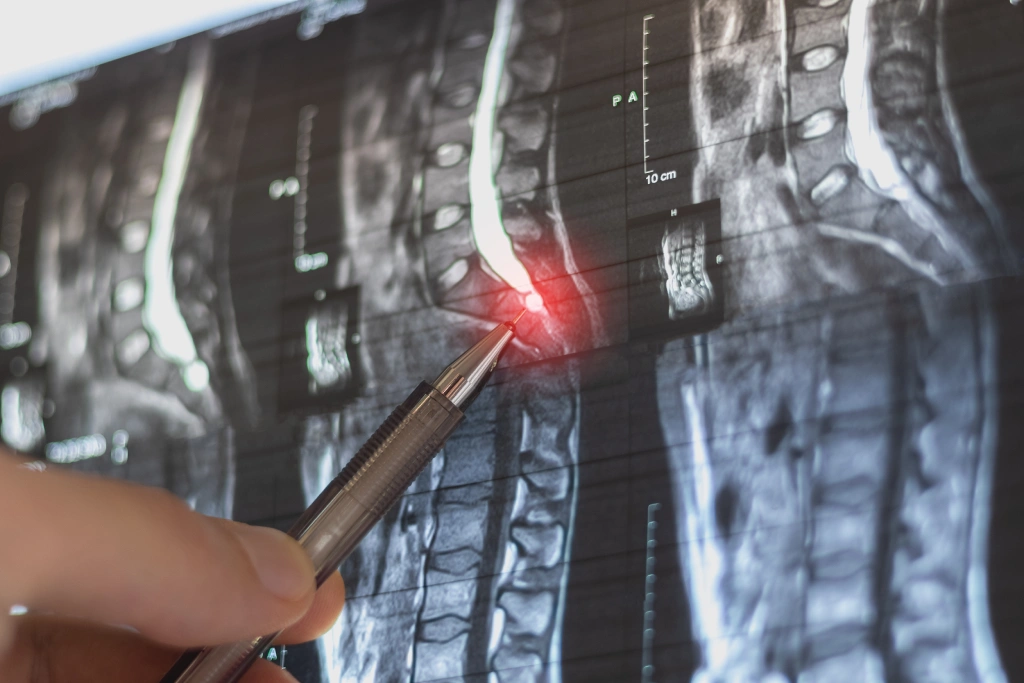September 3, 2025 | personal injury Claims
What Is Post-Concussion Syndrome?
Table of Contents
Most people think of a concussion as a temporary injury. With rest and proper care, symptoms often improve within a few weeks. But for some, the effects of a concussion don’t go away. Instead, they linger for months—or even years. This ongoing condition is known as post-concussion syndrome (PCS).
Post-concussion syndrome can cause a wide range of physical, emotional, and cognitive challenges. Because it can interfere with daily life, work, and relationships, PCS often has a much greater impact than people expect after what seemed like a “mild” brain injury.
In this article, we’ll break down what post-concussion syndrome is, what causes it, common symptoms, and how it’s treated. We’ll also look at the challenges people face when navigating recovery.
If you or someone you love is experiencing PCS after an accident, speaking with one of our Calgary brain injury lawyers may help you better understand your rights and options for compensation. Contact us today to arrange your free initial consultation.
What Is Post-Concussion Syndrome?
Post-concussion syndrome is a condition where concussion symptoms last longer than the expected recovery period. While most concussion symptoms resolve within a few weeks, PCS is diagnosed when they persist for several months or, in some cases, years.
It’s not fully understood why some people develop PCS while others recover quickly, but it’s clear that the injury can affect multiple systems in the body, including the brain, nervous system, and emotional regulation.
What Causes Post-Concussion Syndrome?
PCS usually develops after a traumatic brain injury (TBI), even a mild TBI like a concussion. Concussions often happen due to:
- Motor vehicle accidents (car crashes, motorcycle accidents, or being struck as a pedestrian)
- Falls (particularly slips, trips, or falls from height)
- Sports injuries (such as hockey, football, or soccer collisions)
- Assaults or physical violence
While the exact cause of PCS is still being studied, some researchers believe lingering chemical changes in the brain and structural damage to nerve cells may be responsible. Stress, anxiety, and a history of migraines can also increase the risk of developing PCS.
Symptoms of Post-Concussion Syndrome
The symptoms of PCS are wide-ranging and often overlap with other conditions, which can make diagnosis tricky. Common symptoms include:
- Headaches (often resembling migraines or tension headaches)
- Dizziness and balance problems
- Memory issues and trouble concentrating
- Difficulty sleeping or changes in sleep patterns
- Irritability, mood swings, or depression
- Sensitivity to light or noise
- Blurry vision or ringing in the ears (tinnitus)
- Fatigue
- Difficulty managing daily activities
Not everyone experiences PCS in the same way. For some, symptoms are mostly physical, while for others, the biggest challenges are cognitive or emotional.
How is PCS Diagnosed?
There isn’t a single test that can confirm PCS. Instead, doctors typically rely on:
- A detailed medical history, including the original concussion event
- Neurological exams to check memory, focus, balance, and reflexes
- Imaging tests (CT or MRI scans) to rule out more serious injuries
- Assessments by specialists such as neurologists, psychologists, or psychiatrists
Because PCS can mimic other conditions, it’s important to work with medical professionals who have experience diagnosing and managing concussion-related injuries.
Treatment Options for Post-Concussion Syndrome
Treatment for PCS focuses on managing symptoms and improving quality of life. Every recovery plan is unique, but common approaches include:
- Medications for headaches, sleep issues, or mood-related symptoms
- Cognitive therapy to help with memory, concentration, and problem-solving skills
- Physical therapy to improve balance and reduce dizziness
- Psychological counselling to address depression, anxiety, or PTSD symptoms
- Lifestyle changes such as pacing daily activities, reducing screen time, and getting adequate rest
While there isn’t a single “cure” for PCS, many people see significant improvement with time and proper treatment.
Life with Post-Concussion Syndrome
Living with PCS can be frustrating. Tasks that once felt simple, like working, socializing, or even going grocery shopping, may suddenly feel overwhelming. People often describe PCS as an “invisible injury” because outwardly, they may look fine, but internally, they are struggling with ongoing symptoms.
Some of the biggest challenges include:
- Work limitations due to fatigue, memory problems, or sensitivity to light/noise
- Relationship strain caused by mood changes or a lack of understanding from others
- Financial stress from missed work or ongoing medical costs
- Isolation if symptoms make it difficult to participate in normal activities
These challenges can compound over time, making support from family, friends, healthcare providers, and legal professionals essential.
Legal Considerations After a Concussion
Many people who develop PCS do so because of an accident caused by someone else’s negligence (e.g., a distracted driver or unsafe property conditions). In those situations, you may be entitled to compensation for:
- Medical care and rehabilitation expenses
- Lost wages and reduced earning capacity
- Pain and suffering
- Future care and support needs
Because brain injury cases can be complex, it’s important to work with a legal team experienced in handling concussion and traumatic brain injury claims.
What to Do If You Suspect Post-Concussion Syndrome
If you believe you may have PCS, it’s important to:
- Seek medical attention right away and follow through with treatment
- Keep a journal of your symptoms and how they affect your daily life
- Gather all medical records, bills, and documentation related to your injury
- Speak to a personal injury lawyer to better understand your options for compensation
Need Help? Contact Preszler Injury Lawyers Alberta
At Preszler Injury Lawyers, we know how disruptive post-concussion syndrome can be. The symptoms may not be visible to others, but they can change every aspect of your life. Our legal team is here to help you navigate the recovery process and fight for the compensation you deserve.
We offer free consultations and operate on a contingency-fee basis, which means you won’t pay unless we win your case.
You can reach us anytime—day or night—by calling our toll-free number, 1-888-494-7191. You’re also welcome to visit our downtown Calgary location. Our team is always here to answer your call and guide you through the next steps. Contact us now for answers to your legal questions.
Written by Dairn Owen Shane
Personal Injury Lawyer
Lawyer Dairn Owen Shane’s practice focuses on personal injury claims, including motor vehicle accident claims, slip and fall claims, and long-term disability claims.
More personal injury Topics
Here’s more information on personal injury related topics that we think you might find helpful.

personal injury
|
September 3, 2025
Understanding Spinal Cord Injuries
Spinal cord injuries can be life-altering. Because the spinal cord carries signals between the brain and the rest of the body, damage to it often…

personal injury
|
June 5, 2025
Catastrophic Injuries in Alberta
Catastrophic injuries are very serious injuries that impose lasting consequences. For legal purposes, catastrophic injuries are defined in Alberta as permanently damaging to the victim’s…

personal injury
|
June 5, 2025
Social Media and Personal Injury Claims: What to Avoid
Filing a personal injury claim can be a long and complex process and social media can make a significant impact. While platforms like Facebook, Instagram,…
Speak With Our
Legal Team for FREE
Find Out if You Have a Case in Under 5 Minutes
Speak to a Lawyer Now!
We’re here to help.
